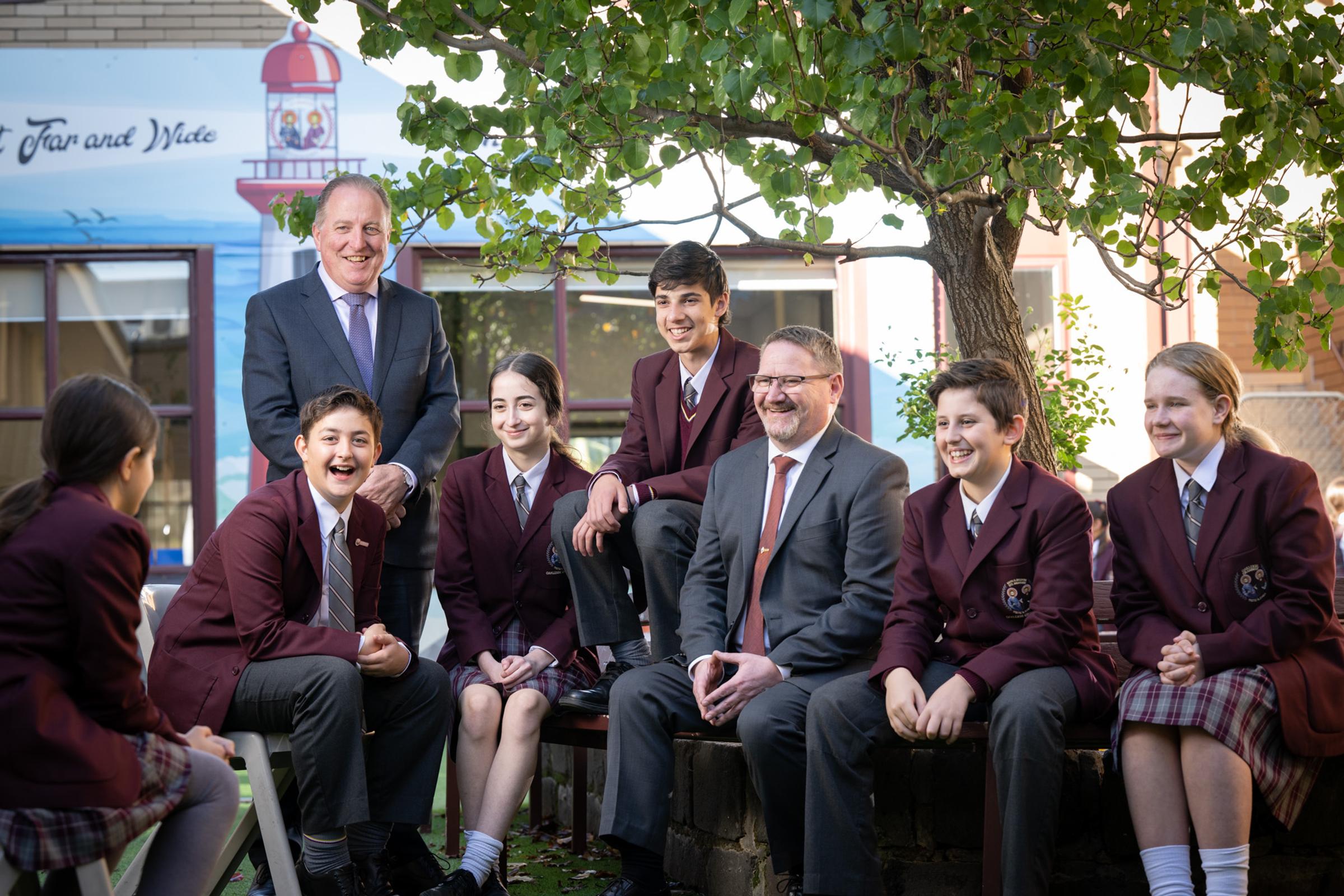Deputy Principals' Reports

A new term and a new semester bring new opportunities for action and improvement in the learning journey for each student at Oakleigh Grammar. Parents having received Semester 1 Reports and hopefully have had the opportunity to discuss these with their children, the focus is on acting on the feedback and focusing on the tasks and deeds that will lead each student to the next level of growth and academic attainment.
The importance of feedback within and upon student learning is a core phase of the Oakleigh Grammar Teaching and Learning Model (OGTLM). It sits at the centre of the teaching and learning process and must always be purposeful, actionable, and timely. Our focus on effective feedback is designed to determine each student's level of understanding and skill development to plan and assist them in their next steps towards achieving better outcomes.
Quality and meaningful feedback comes in many forms, but to ensure it is effective and has an impact, teacher feedback upon all student work has the following qualities:
- Responds to the quality of the students' work as presented and the processes involved
- Challenges and encourages students to further develop specific skills and knowledge
- Identifies what the student has done well and has or has not been understood or demonstrated
- Is specific and focused on the work that is presented, its quality, and content
- Is directly linked with the content being taught and is relevant to the overall achievement of the student
- Is not about praise, reward, or punishment but about knowledge, skills, and improvement
- May come in different forms such as written, spoken, or gesture.
As a fundamental element in the process of student learning, we are committed to the improvement and feedback, in all its forms, to improve each and every student’s academic growth and achievement. As a core component of OG TLM, we are continually improving our feedback methodologies and engaging our students and parents within this process. With open, transparent, and timely feedback practices, we have a greater opportunity to work together to help our students achieve at their highest levels.
Lance Ryan
Deputy Principal - Teaching and Learning
The CPR of Resilience
Each year, Oakleigh Grammar undertakes the Resilient Youth Survey with students from Years 3 to 12. This is a nationally accredited survey, administered in over 1400 schools nationwide and provides a measure of the resilience, mental health, and wellbeing of our students in comparison to Australian norms. Specifically, the survey measures the resilience and wellbeing of young people across the key domains which are seen as the essential ingredients of a resilient life for young people (CPR):
- Connected (to yourself and others) - positive relationships, social skills, and understanding of self
- Protected (to protect yourself and be protected by others) - safety, healthy mind and body, and learning engagement
- Respected (to respect yourself and be respected by others) - positive attitude, positive values, and positive contribution
Whilst all data is anonymous and non-identifiable, as a school, we are able to analyse the data for a specific year group or at a whole school level, including being able to track a cohort over time. This analysis helps us to better understand our students’ wellbeing, strengths, and challenges, and begin to consider and implement key actions to support our students further in the areas that are specific to them.
As part of these processes, we are always keen to validate and enhance student advocacy in the development of actions as this is empowering them to share responsibility for developing and enhancing their own resilience, mental health, and wellbeing. For example, in several year levels, students have worked with their pastoral staff to unpack the results and add their input into the development of the actions to be implemented.
Whilst there is a different picture for each year level, I draw out some common elements that came through this year’s results from across the school.
There was a general sense that our students, in positive relation to other students of the same age:
- Feel safe at school
- Have adults in their lives that set a good example
- Can talk about things that upset them
- Know where they can find a way to solve a problem
However, in relation to other students of the same age, our students are challenged by:
- Connecting with others who may be different from them
- Texting and using devices after 10:00 pm
- Getting more than 8 hours of sleep most nights, particularly female students
The Resilient Youth Survey forms one part of our Pastoral Care Program and we will continue to review and adapt our programs to meet the needs of our students. We also know that student resilience and mental health data are strongly linked to learning outcomes so it is vital to know what students are experiencing in school and at home.
Peter Dickinson
Deputy Principal - Operations


